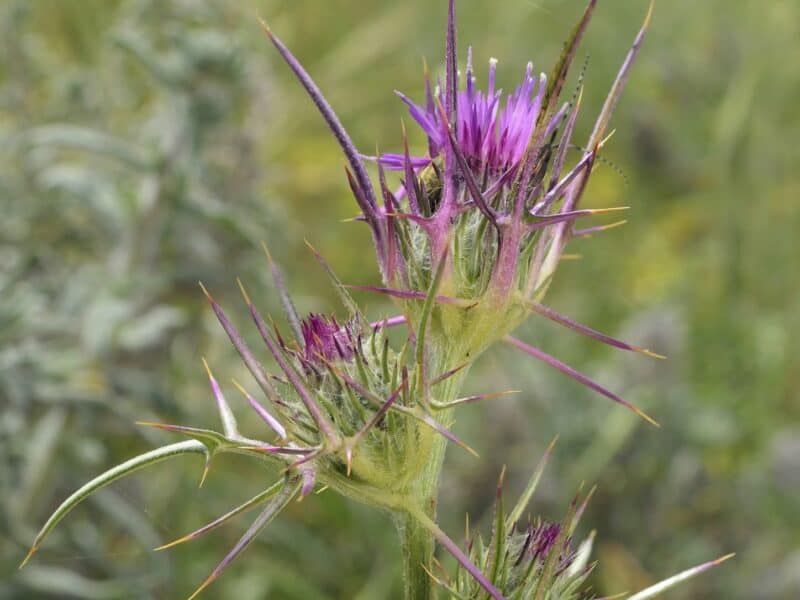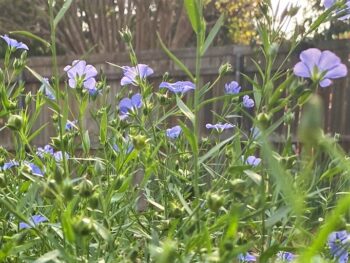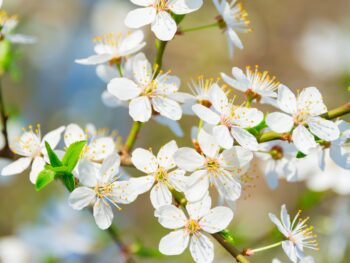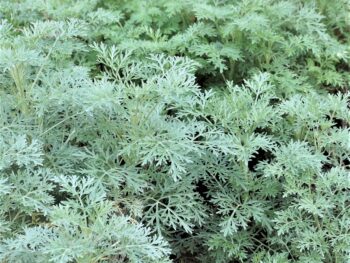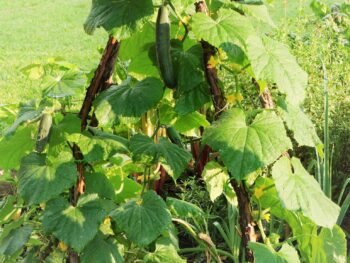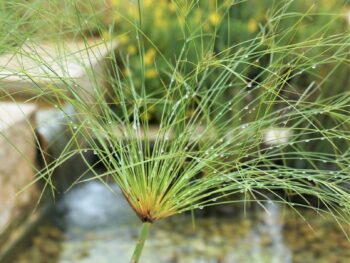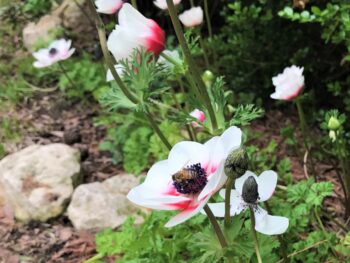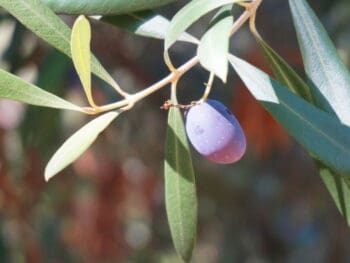Preparing the soil is where garden dreams meet the ground, for a garden plant’s best chance at good growth and lifelong health, leading to a garden full of thriving flora, is fertile soil. Soil fertility is a mysterious mix of microbes, minerals, air movement from tunneling bugs and wriggly worms, and organic matter—sometimes all that is needed is “a foot of well-rotted manure,” garden writer Helena Rutherford Ely proclaimed. In a garden view of faith in God, soil is a metaphor for soul, and the Lord uses overwhelming troubles in our lives like a gardener would, to break up unplowed ground (Hosea 10:12). Thistles and thorns were the plants assigned to needle us about our need for amending, accompanying the decree that cultivating plants from the ground would be hard work (Genesis 3:18).
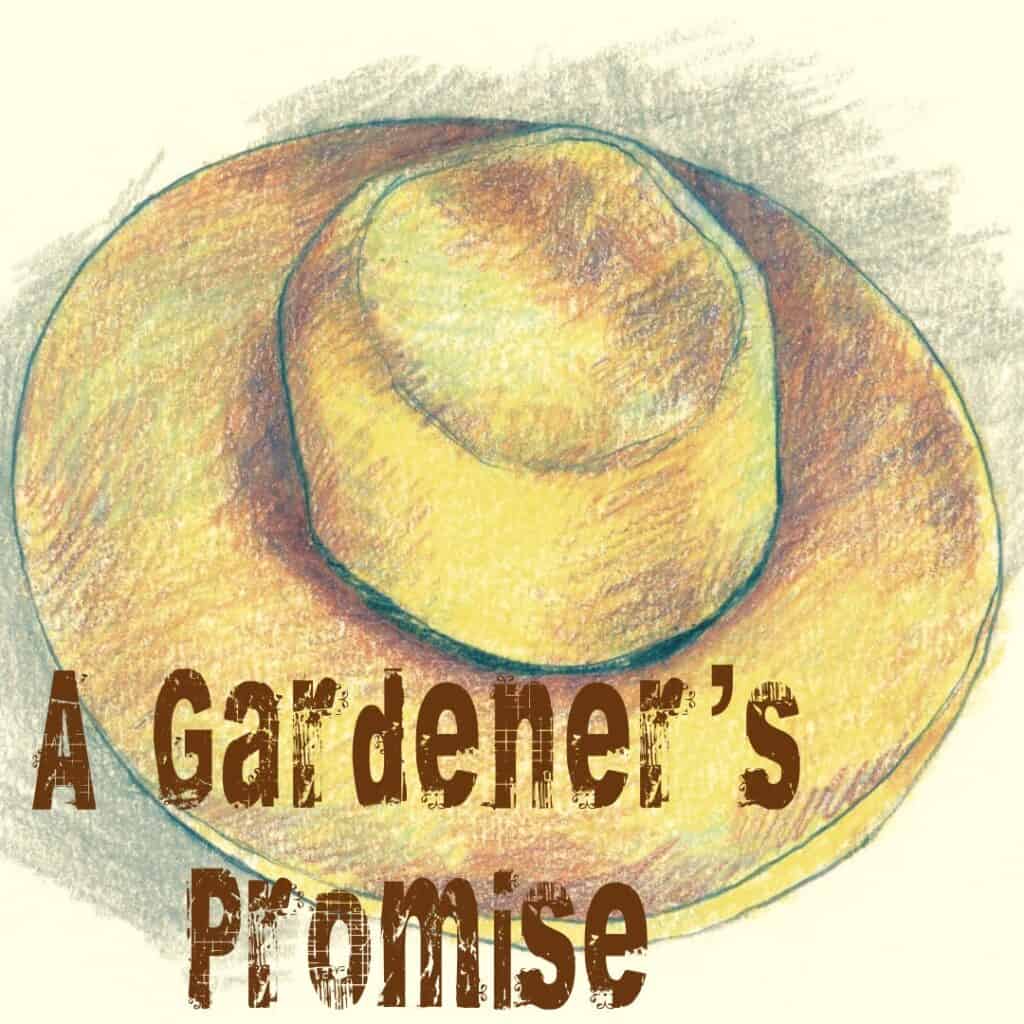
Plants that prickle instead of please, and invade our best garden plans with bristly, barbed growth are the Bible’s imagery for being led away from our charge to keep the garden, that is, our earthy sanctuary for meeting and keeping company with the Lord. He wants to engage us in this earthly realm; God gets down to nitty-gritty and nuance, flushing out our flaws with His glory, cultivating our desire to be amended by His everlasting ways.
Chapters 3 and 4 – Preparing the Soil & Thistles and Thorns
Having considered the canopy gesture of peace, fruitful blessing, mightiness, and permanence of the Lord in landscape trees (see Choosing & Olive and Oak Trees from last week and chapters 1 and 2 in My Father is the Gardener), it is time to get down to the dirt. Chapters 3 and 4 relate the deep reaching metaphor of God’s work to prepare us for eternal life with Him to the practice of preparing the soil. Let’s dig in!
Link to Purchase My Father is the Gardener
Thistles and Thorns
Thistles and thorns play a prominent role in God’s Word from the get-go, where they are assigned in Genesis to alert us to the troubles that come with working apart from God.
To Adam he said, “Because you listened to what your wife said and ate from the tree about which I gave you the order, ‘You are not to eat from it,’ the ground is cursed on your account; you will work hard to eat from it as long as you live. It will produce thorns and thistles for you, and you will eat field plants. Genesis 3:17-18 CJB
Spiritually speaking, thistles can symbolize frustrations we have in work, the breakdown of attitudes, systems, or sequencing that wear us down and agitate us while accomplishing the task at hand. Thorns can speak to darker, sinister forces that come to mock and dismantle our work and maim our destiny. Neither of these plants are recommended for your home landscape, though they give you plenty to ponder while beginning spring weeding of spikey invaders in your own garden.
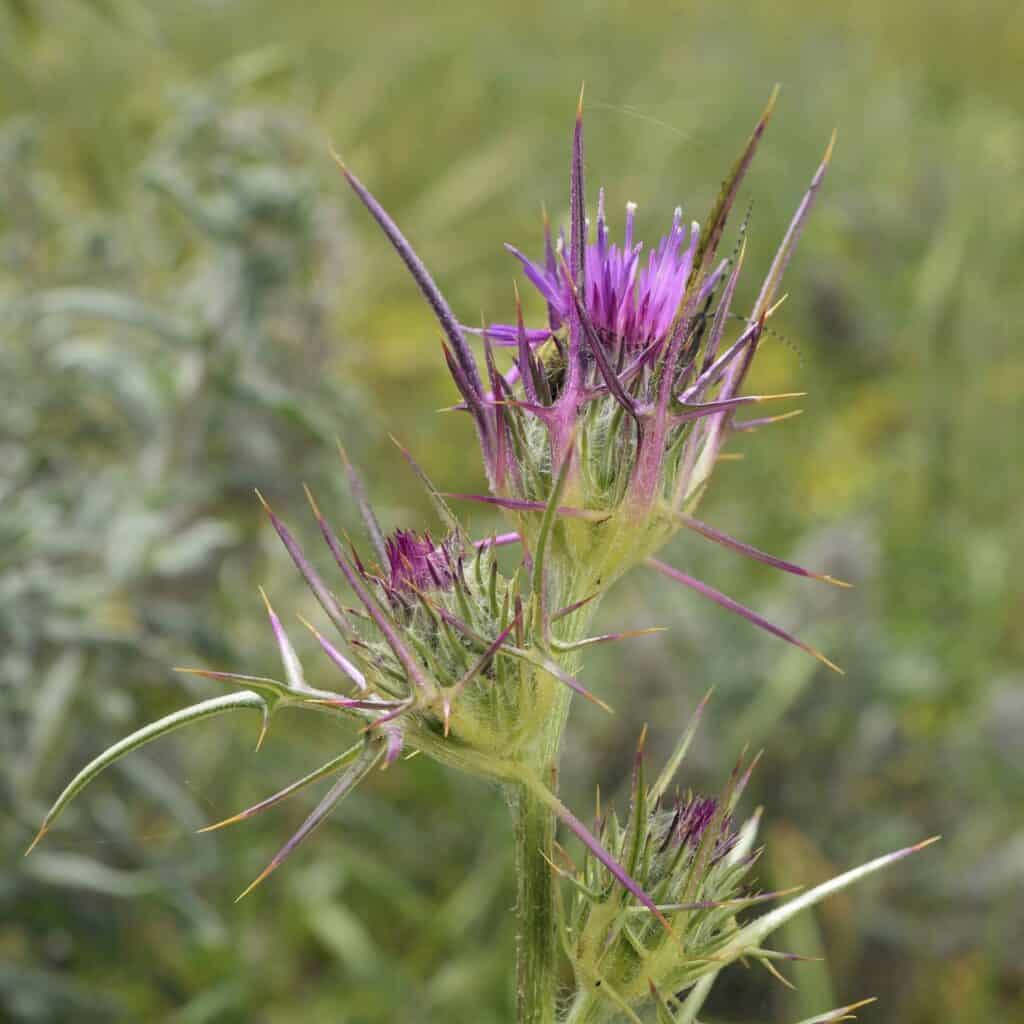
Many thistles, nettles, briers, and the like are prevalent in the Holy Land, so we selected the native Syrian thistle, Notobasis syriaca, from the Asteraceae family, to highlight in My Father is the Gardener. An annual plant spread aggressively by downy seeds, Syrian thistle has characteristic purple flowers, heavily guarded by spiney quills formed on flower sepals and leaves. Let me repeat: not a plant for your garden! Yet you can read more about this thistle in the Plant Guide: Syrian Thistle – Garden In Delight
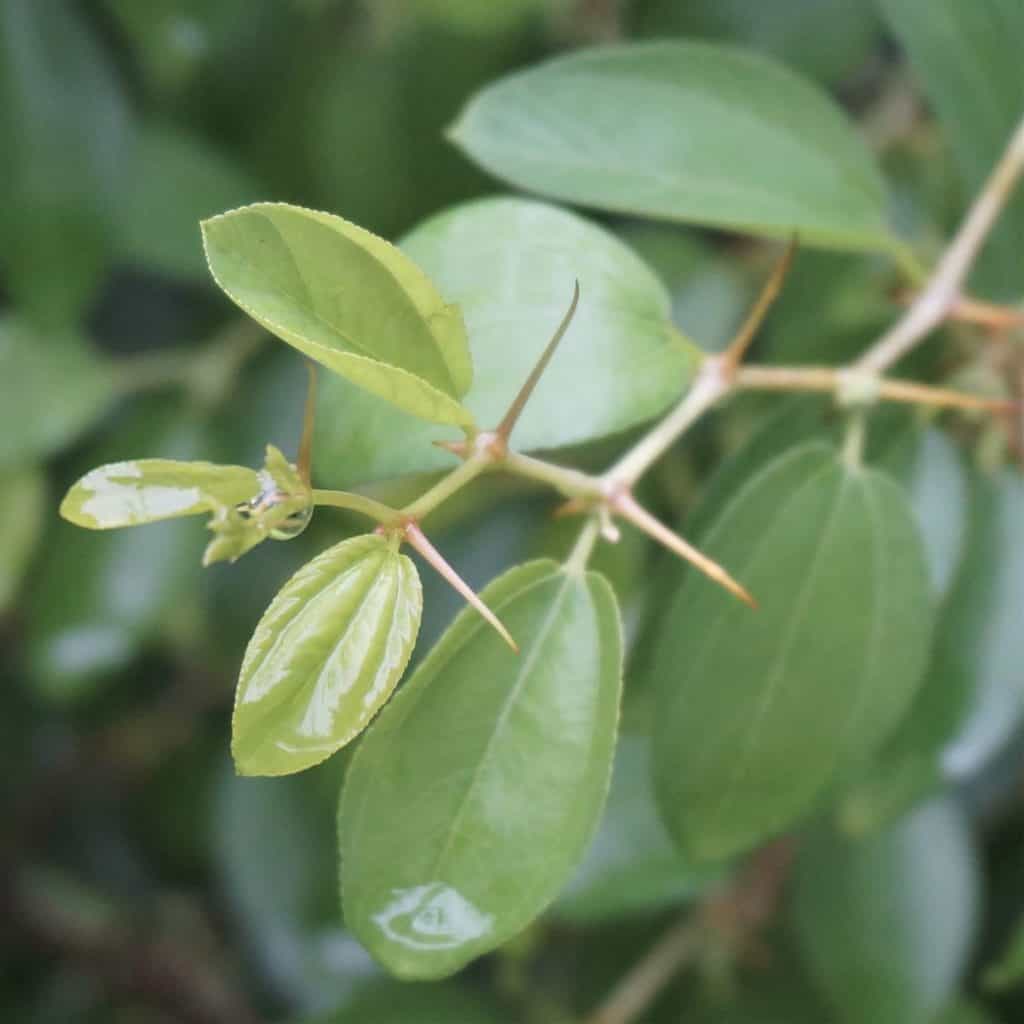
Thornbushes, by contrast, usually indicate perennial plants or small trees, with spines formed from branch tissue for a sturdier stab. In particular, Ziziphus spina–christi, Christ thorn, has a subtle armor of thorns tucked nearly out of view under leaves, until a move through the thicket reveals troubles! Barbed branches pierce the skin despite a lush, lovely green-appearing shrub. Unless you are wanting a hedge of protection, this thornbush is better for read-only study than a garden center shopping list. Read more about Christ Thorn in the Plant Guide: Christ Thorn – Garden In Delight
Click here for a printable PDF file of Preparing the Soil and Thistles and Thorns Journal Questions
Journal Questions Chapter 3
Follow along in Chapter 3 of My Father is the Gardener
I went by the field of a slacker and by the vineyard of a man lacking sense. Thistles had come up everywhere, weeds covered the ground, and the stone wall was ruined. Proverbs 24:30–31 HCSB
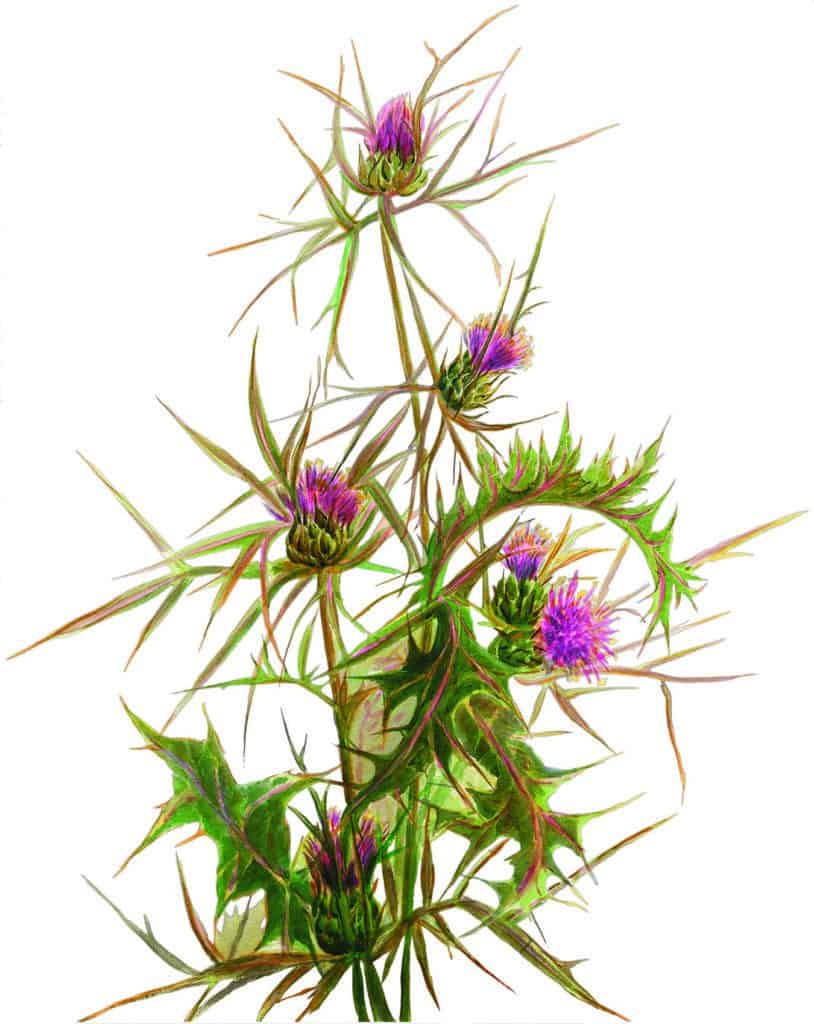
- Do you have a view to thistles where you live, maybe a vacant lot you pass by regularly, or a roadside strip that fills with weeds and thistles in the spring? Jot down impressions from the thistles in the landscape.
- Think about how they thrive in uncultivated land. Fields and lawns that are regularly mowed will not have an abundance of thistles compared to land left on its own. What would you identify as a “thistle” in your life, a habit or pattern that threatens your productivity and seems easy to ignore?
- Write out Hebrews 6:8 in your own handwriting:
- Pen a prayer to your Father the Gardener to “burn it clean (Hebrews 6:8 Phillips);” that is, to clear it away and purify you of this practice:
Thistles are symbolic of land neglected, a strike against our very purpose, “to work and take care of” the garden (Genesis 2:15).
Shelley S. Cramm, My Father is the Gardener, page 32
Then said I, Woe is me! for I am undone; because I am a man of unclean lips, and I dwell in the midst of a people of unclean lips: for mine eyes have seen the King, the Lord of hosts. Isaiah 6:5 KJV
- Have you ever had a moment like Isaiah, Jeremiah, or John the Baptist, where you felt the weight of your unworthiness? Was it in response to a glimpse of God’s glory, or from an overwhelming work set in front of you to do?
- Did you know the Lord during this crisis? Were you able to trust that He was preparing you, or did you think that you were on your own to attempt and accomplish the work?
“But the tax collector stood at a distance. He would not even look up to heaven, but beat his breast and said, ‘God have mercy on me, a sinner.’” Luke 18:13 NIV
- How does the tax collector’s earthy prayer, “God have mercy on me, a sinner” resonate with you because of your garden work? That is, how does working close to the ground, down near the dirt, give you dimension and context to this plea?
- Write Proverbs 3:34 in your own handwriting:
Search me, God, and know my heart; test me and know my anxious thoughts. See if there is any offensive way in me, and lead me in the way everlasting. Psalm 139:23–24 NIV
- In what ways have you noticed God preparing you? What kinds of “offensive ways” has He exchanged for His everlasting ways?
- As you grow closer to God, do you sense his “eager mind” [other translations: willing mind, devoted soul, delighted soul, single mind] establishing or taking root in you (1 Chronicles 28:9)?
He goes about the work of preparation, unruffled and unwavering in his purpose.
Shelley S. Cramm, My Father is the Gardener, page 41
Yea, though I walk through the valley of the shadow of death, I will fear no evil: for thou art with me; thy rod and thy staff they comfort me. Thou preparest a table before me in the presence of mine enemies. Psalm 23:4–5 KJV
- Reflect on the deliberate, focused ways of the Lord revealed in Psalm 23:4-5, Job 2:2-3 and Luke 10:19. Write a prayer to the Lord about your desire for His resolute ways to become your approach to life’s work pressures:
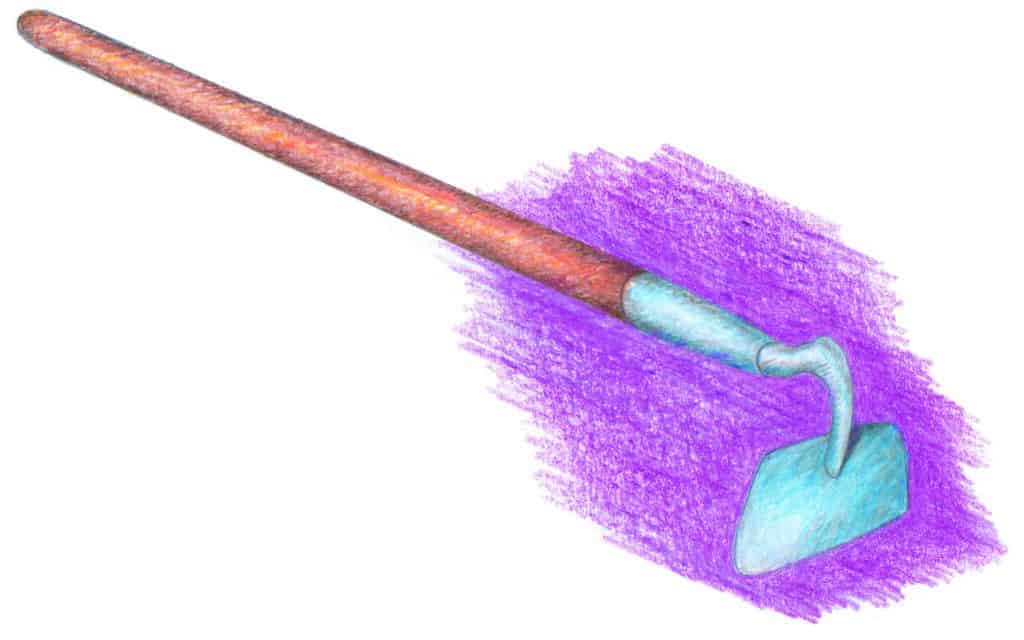
Journal Questions Chapter 4
Follow along in Chapter 4 of My Father is the Gardener
They dressed him up in purple and put a crown plaited from a thornbush on his head. Then they began their mockery. Mark 15:17 MSG
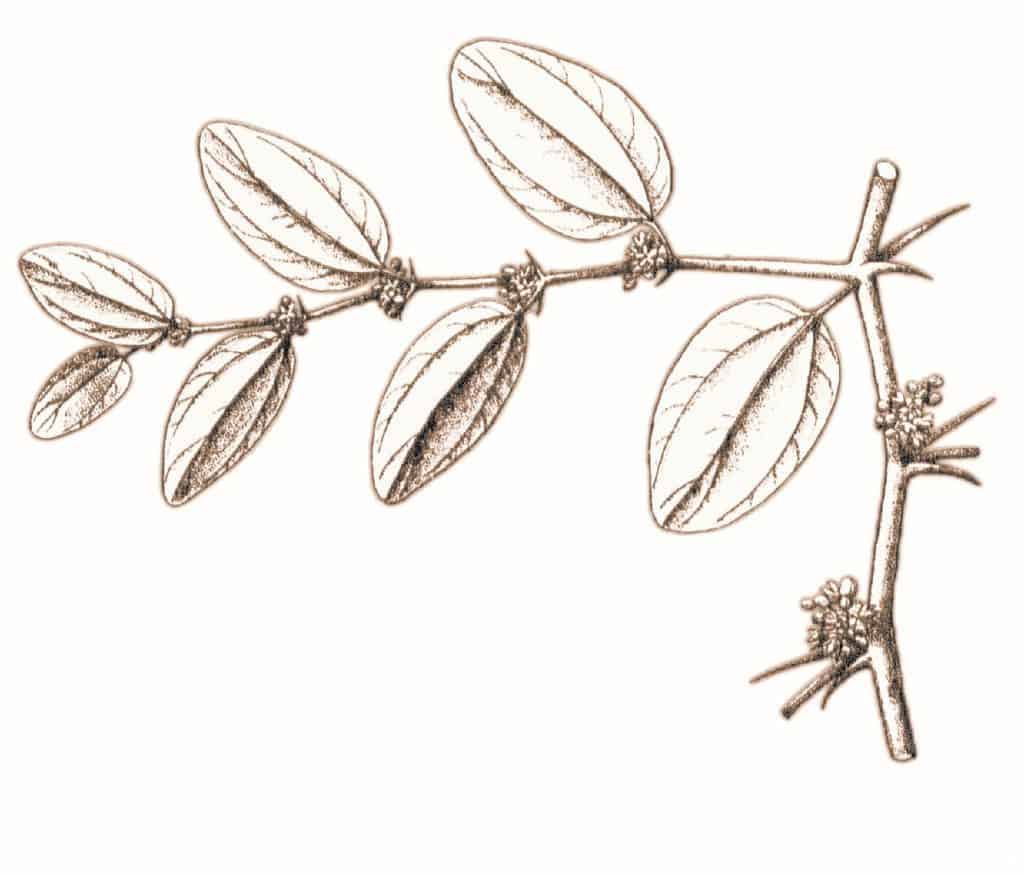
- Jesus endured ridicule for His Kingdom rule, symbolized in a crown made of thorns instead of a gleaming royal crown fit for a king. Is there a time when you were mocked or scorned in the work you felt called or compelled to do?
- Describe something you worked to accomplish though hardships, insults, or difficulties (2 Corinthians 12:7-10 TLB)?
- How did your trust and confidence in Jesus grow because of such metaphorical thorns?
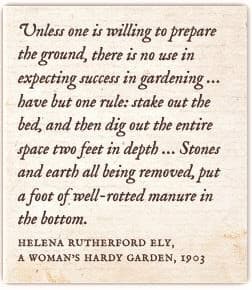
For Ezra had prepared his heart to seek the law of the Lord, and to do it, and to teach in Israel statutes and judgments. Ezra 7:10 KJV
- Can you look back over your life and see a time when “a foot of well-rotted manure” might describe your place at the bottom? That is, when you felt lowly, dumped upon, or cast down?
- How has the Lord used this as a preparation for greater work in your life? in the life of your family and community?
Behold, I will send my messenger, and he shall prepare the way before me. Malachi 3:1 KJV
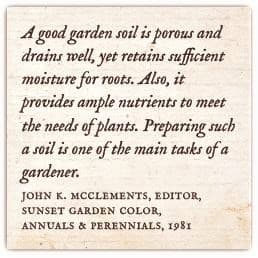
- Have you ever considered the proclamations of John the Baptist together in one gathering? Read once more Malachi 3:1, then Isaiah 40:1–5, then Mark 1:3–5, then Matthew 3:2.
- How does this prophecy-become-reality history of John the Baptist convince you of God’s commitment of tending to the “main task,” as John K. McClements wrote?
- Which Word moves you, the flowery, comfort appeal of Isaiah or the bullet-point bluntness of Matthew?
Preach the word; be prepared in season and out of season; correct, rebuke and encourage—with great patience and careful instruction. 2 Timothy 4:2 NIV
- Has keeping a garden established a desire in you to be prepared in any season?
- Which season is your favorite to prepare for? These can be holiday seasons, weather seasons, after-tax season, family travel seasons, etc.
“And who knows whether you have attained royalty for such a time as this [and for this very purpose]?” Esther 4:14 AMP
- Are you familiar with the story of Esther? Click here to read Esther 1-9 online. Write about a time when you were a key person in bringing about a transformation from evil or worldly ways to God’s ways of justice, mercy, and joy?
- Do you see the transformation in chapter 4 from the crown of thorns to the crown of myrtle sprigs, in honor of Queen Esther, whose name means “myrtle”? Do you perceive the reversal, the mocking ways of Haman overcome by the faithful ways of Mordecai and Esther?
- The Esther story patterns Jesus’ reversal, His Resurrection life overcoming the crucifixion death. Write a praise-prayer for Jesus’ victory over evil:
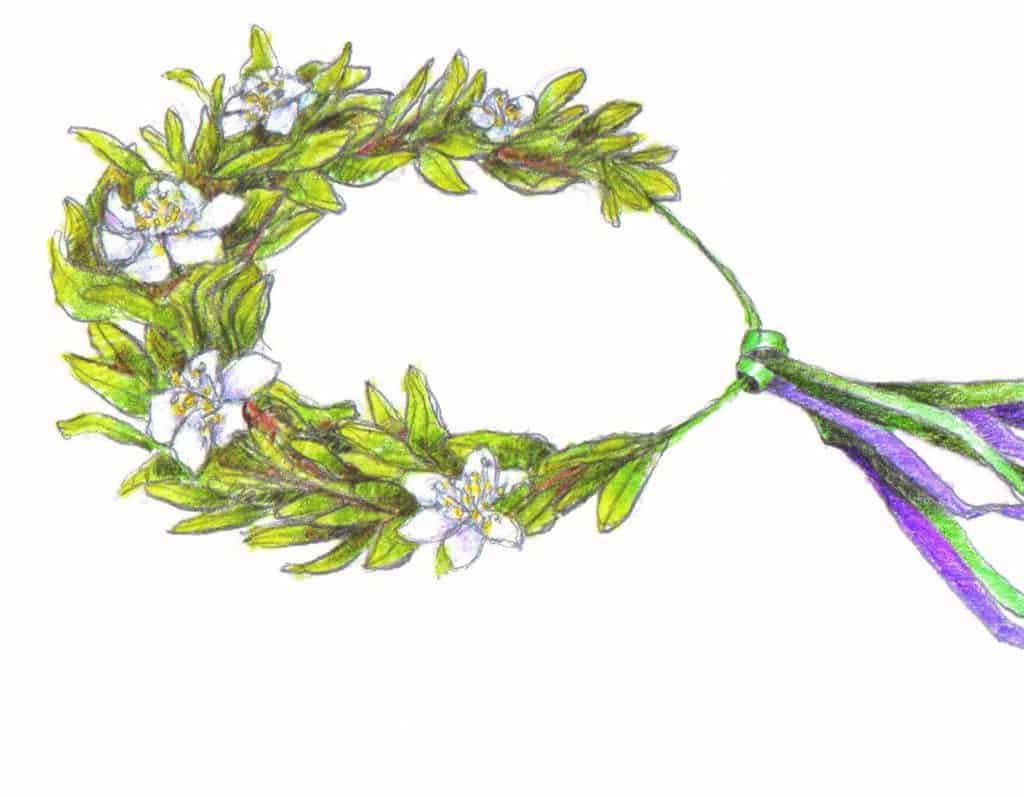
Closing Prayer
O Lord, thank you so much for the understanding that my garden brings to your preparing ways. Amending and overturning garden beds, adding compost, humus, soil testing, and mulching are some of the most vigorous chores in garden care, but the most rewarding. A healthy relationship with the dirt sets my heart more at ease in caring for plants, knowing they have a tremendous advantage by being planted in good soil. Make me good soil, O God! Work out my troubles, improve my conditions, make me ready to grow in you. Rid me of “thistles and thorns” and clear a place for your productivity. Lord, these Words relating to preparation contain some of your most profound prophecies. Make me ready to recognize your ultimate works of overturning evil for your everlasting ways. In Jesus’ Name, I pray. Amen.
He will always show me love by his gracious and constant care. Psalm 57:3 TPT

A Gardener’s Promise explores God’s forever-with-you devotion to us. More than a casual sentiment, God’s love is an enriching commitment to dig into everything together, a promise to hang your hat on. Part journal questions, part planting guide, this 7-part series has been created as a companion to My Father is the Gardener, Devotions in Botany and Gardening of the Bible, a way to work out God’s profound assurance in the backyard, arriving at Resurrection Day with a deeper grasp of what Christ has for us in revival life.
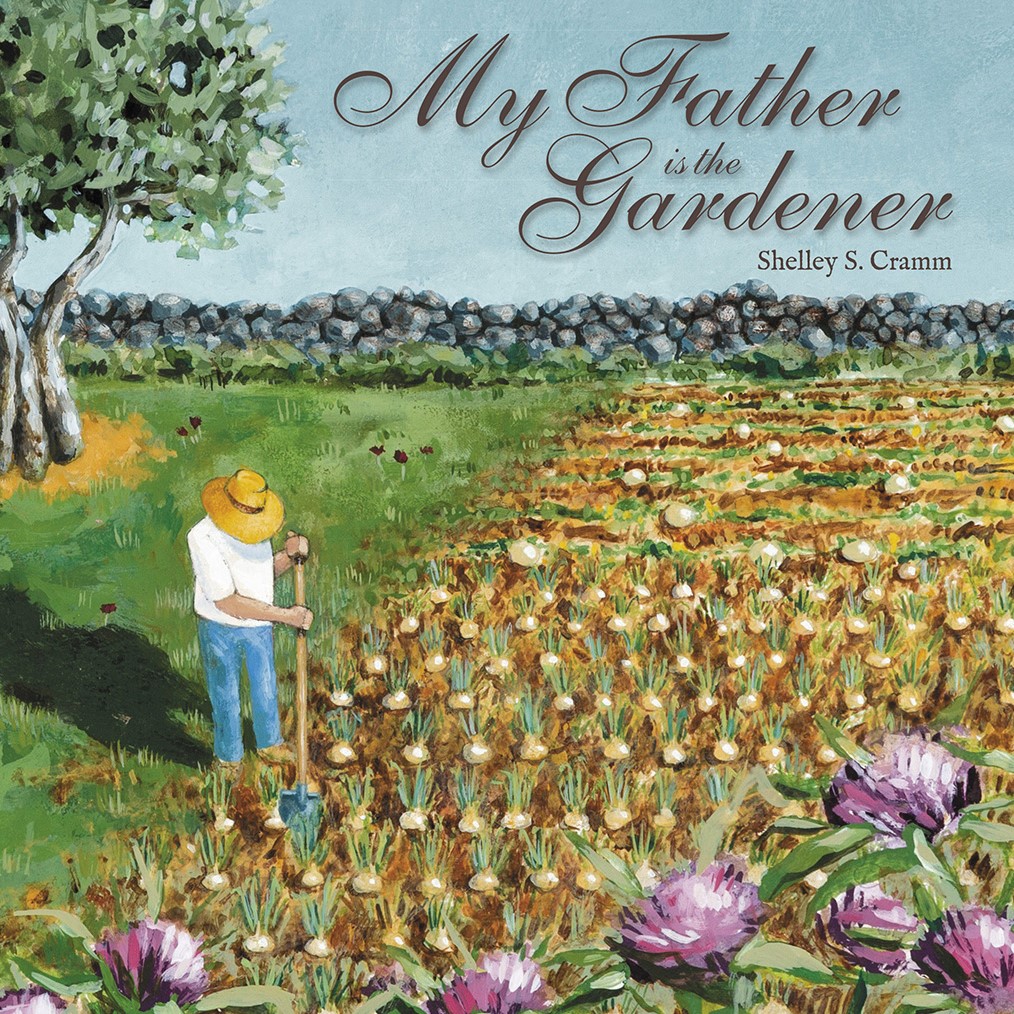
Enjoy Shelley’s latest book, a perfect study for Lent and the herald of spring. My Father is the Gardener digs into the plants, gardening, and landscapes of the Bible, unearthing inspiration in the routine ways of caring for plants and keeping a garden. Now available at BRIT Press, Powell’s Bookstore, and Amazon. Click to order: www.gardenindelight.com/books/my-father-is-the-gardener/
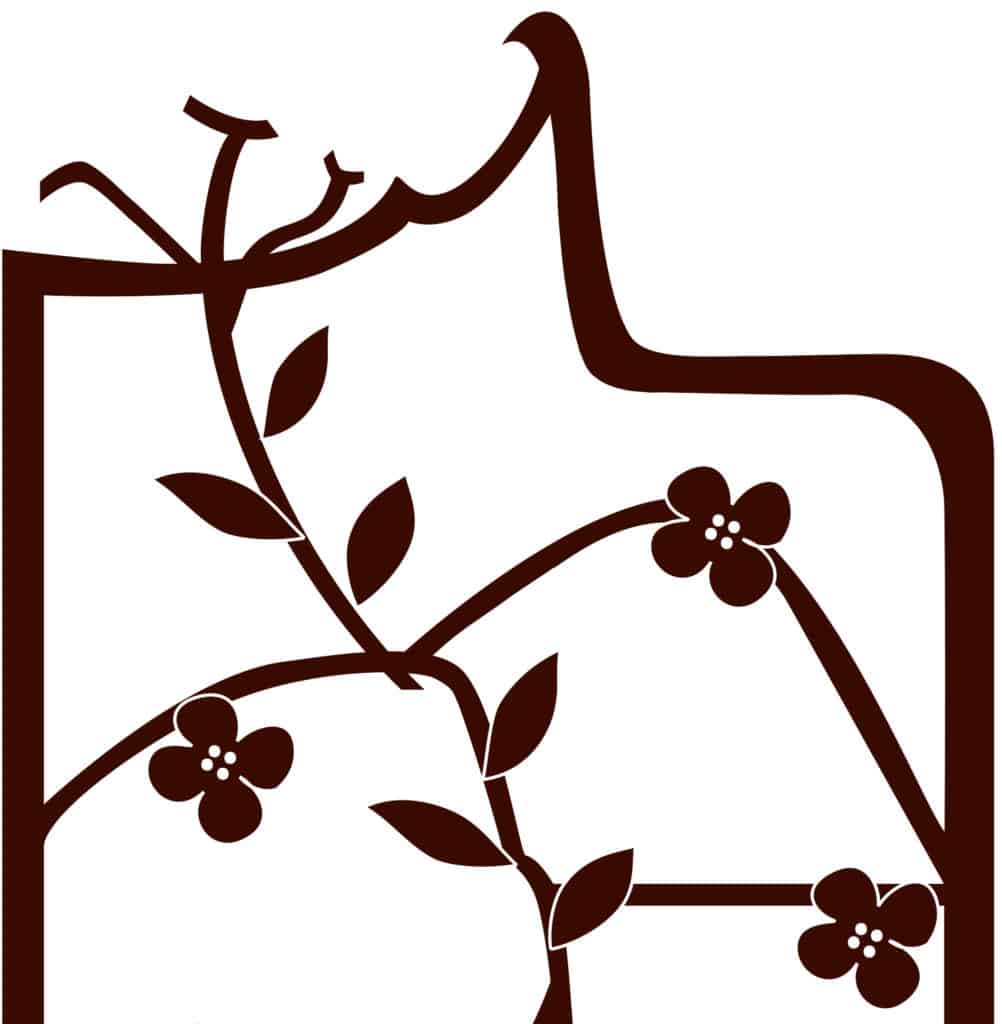
Visit the Plant Guide for more information on growing the plants of the Bible in your own garden. Find Syrian Thistle – Garden In Delight and Christ Thorn – Garden In Delight and much more!
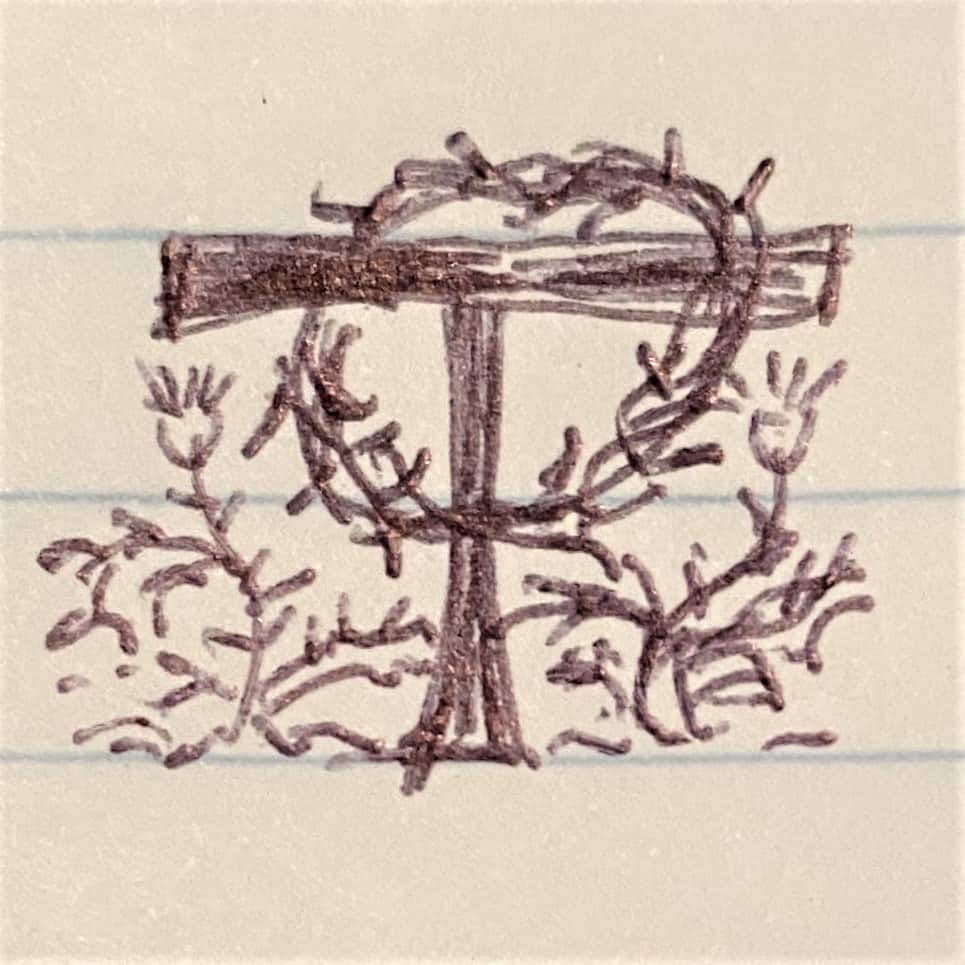
Take in the deeper layers of horticultural meaning and pun with the A-to-Z Primer of Plants from God’s Word, “T is for Thorns and Thistles”
Photo Credits: © Whiskybottle | Dreamstime.com Photo 70294515, Syrian Thistle – Notobasis syriaca Purple Mediterranean Wild Flower (Lead image and Thistle Plant Guide image); ©2019 shelley S. Cramm, Christ’s thorn, Ziziphus spina-christi, photographed at San Antonio Botanical Garden in the Sacred Garden; Whiting, Grace Spafford, Artist. Syrian thistle, Notobasis syriaca cass./G.S. Whiting. [Between 1933 and 1961] Photograph. Retrieved from the Library of Congress. www.loc.gov/item/2013646202/; Garden Hoe by Layla Luna; Engler, Adolf. Die Naturlichen Pflanzenfamilien … Vol. 3. (Leipzig: Verlag von Wilhelm Engelmann, 1896). Page 403, Figure 198J. From the Botanical Research Institute of Texas Library; Myrtle head wreath by Layla Luna. All drawings by Layla Luna created exclusively for My Father is the Gardener are copyrighted material. For copyright permission, please contact Shelley S. Cramm, shelleycramm@gardeninDelight.com
AMP notes Scripture quotations taken from the Amplified® Bible, Copyright © 2015 by The Lockman Foundation. Used by permission. www.Lockman.org
CJB notes Scripture quotations taken from the Complete Jewish Bible by David H. Stern. Copyright © 1998. All rights reserved. Used by permission of Messianic Jewish Publishers, 6120 Day Long Lane, Clarksville, MD 21029. www.messianicjewish.net.
HCSB denotes Scripture quotations taken from the Holman Christian Standard Bible®, Copyright © 1999, 2000, 2002, 2003, 2009 by Holman Bible Publishers. Used by permission. Holman Christian Standard Bible®, Holman CSB®, and HCSB® are federally registered trademarks of Holman Bible Publishers.
KJV denotes Scriptures taken from The Holy Bible, King James Version published in 1611, authorized by King James I of England, which is public domain in the United States.
MSG denotes Scripture quotations taken from THE MESSAGE, copyright © 1993, 2002, 2018 by Eugene H. Peterson. Used by permission of NavPress. All rights reserved. Represented by Tyndale House Publishers, a Division of Tyndale House Ministries.
NIV denotes Scripture quotations taken from the Holy Bible, New International Version®, NIV®. Copyright © 1973, 1978, 1984, 2011 by Biblica, Inc.® Used by permission of Zondervan. All rights reserved worldwide. www.zondervan.com The “NIV” and “New International Version” are trademarks registered in the United States Patent and Trademark Office by Biblica, Inc.®
TPT denotes Scripture quotations taken from The Passion Translation®. Copyright © 2017, 2018, 2020 by Passion & Fire Ministries, Inc. Used by permission. All rights reserved. ThePassionTranslation.com
VOICE denotes Scripture quotations taken from The Voice™. Copyright © 2012 by Ecclesia Bible Society. Used by permission. All rights reserved.

